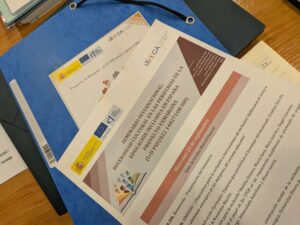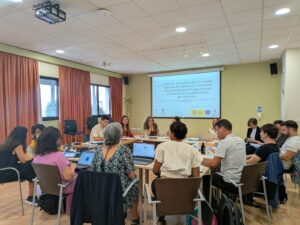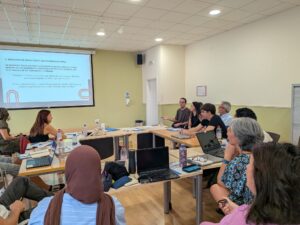Seminario ExMargins
El pasado 24 y 25 de septiembre se celebró con éxito el Seminario Internacional “Diversidad cultural en las periferias de la educación inclusiva en España”.
Durante dos jornadas intensas, este espacio se consolidó como un punto de encuentro lleno de entusiasmo, participación activa y debates enriquecedores, en el que investigador@s reflexionaron sobre los retos y oportunidades de la inclusión desde una perspectiva intercultural.
El intercambio de experiencias e ideas permitió abrir nuevas miradas y fortalecer compromisos hacia la construcción de una educación más justa, equitativa y diversa para todas y todos.

Además, el seminario sirvió para marcar los próximos pasos del proyecto, orientados a consolidar la investigación, ampliar la difusión de resultados y seguir impulsando iniciativas conjuntas que conecten a la comunidad académica con los centros educativos y la sociedad.



